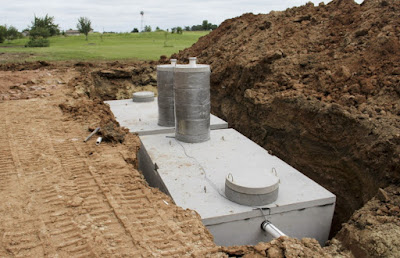A leach field, also known as a septic tank drain field or simply a leach field, is a simple system used to remove excess water and sewage from a home or building. The leach field consists of a series of perforated pipes that are buried in the ground and surrounded by gravel. The pipes are connected to the septic tank and allow the water and sewage to slowly leach out into the surrounding soil.
The leach field is an important part of any septic system and must be designed and installed correctly in order to function properly. Leach fields can be either private (belonging to a single home or business) or public (serving multiple homes or businesses). Private leach fields are typically smaller than public leach fields and are usually located in the yard of the home or business. Public leach fields are typically much larger and are usually located away from homes and businesses.
Leach fields must be properly maintained in order to function properly. Leach field maintenance includes pumping out the septic tank on a regular basis, as well as inspecting and repairing the leach field if necessary. Leach field repairs can be costly, so it is important to have the leach field inspected regularly by a qualified professional.
What Are The Different Types Of Leach Fields That You Can Install In Your Property?
There are two main types of leach field systems that you can install on your property: gravity flow and pressure dosed. Gravity flow systems rely on the natural force of gravity to move effluent through the leach field, while pressure-dosed systems use a pump to distribute effluent evenly throughout the leach field. Both types of systems have their own advantages and disadvantages, so it is crucial to choose the right one for your particular property and needs.
Gravity flow leach fields are typically less expensive to install than pressure-dosed systems, but they require more maintenance and may not be as effective in treating effluent. Pressure-dosed leach fields are more expensive to install but require less maintenance and are more effective in treating effluent. Choosing the right type of leach field for your property will depend on a number of factors, including the size of your property, the amount of effluent produced, and the soil conditions on your property.
If you are not sure which type of leach field is right for your property, it is important to consult with a professional before making a decision. A professional will be able to assess your particular needs and recommend the best type of leach field for your situation. Leach fields are an important part of any septic system, and choosing the right one can help ensure that your septic system works effectively and efficiently.
What Is The Importance Of Regularly Maintaining Your Leach Field?
The leach field is an important part of your septic system, and it is important to keep it in good working order. A properly functioning leach field helps to remove contaminants from your septic tank effluent before it is discharged into the environment. Leach fields are usually located underground, and they can become clogged over time if they are not properly maintained. If your leach field becomes clogged, it can cause your septic system to fail, which can lead to costly repairs.
To avoid problems with your leach field, it is important to have it inspected and pumped on a regular basis. Leach fields should be inspected at least every three years, and they should be pumped when the level of solid waste in the leach field reaches a certain point. Pumping your leach field will remove the accumulated solids and help to keep it functioning properly.
In addition to having your leach field inspected and pumped on a regular basis, you can also take some other steps to help keep it in good working order. For example, you should avoid using chemicals that can kill the bacteria that help to break down waste in the leach field. You should also avoid driving over or parking on your leach field, as this can compact the soil and damage the system. If you have any questions about how to maintain your leach field, you should contact a professional septic system contractor for more information.

